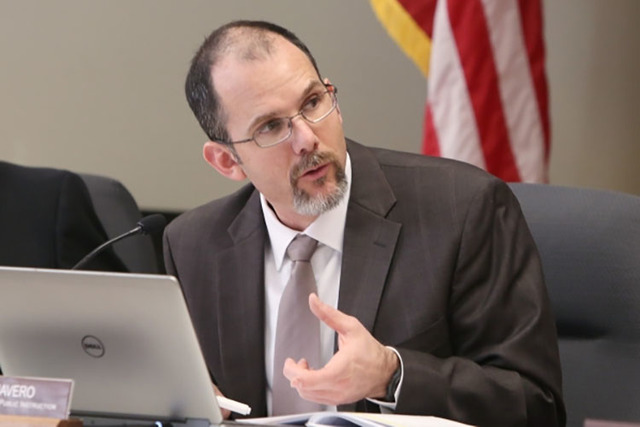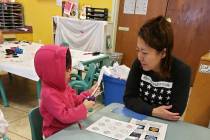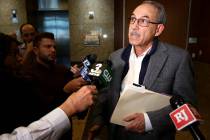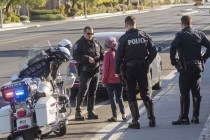Sizing up Nevada’s bottom-of-the-barrel reputation on public education

Worst in the nation.
Or, at least, among the worst. That’s the reputation of Nevada’s K-12 public education system.
The label hangs over teachers who come to work here, over every test score — even over some students, who are keenly aware of the status of their public education system.
But we’re the worst according to whom?
The answer is that Nevada lags in an array of studies. Perhaps the most formidable is the National Assessment of Educational Progress (NAEP), which consistently rates Nevada’s fourth- and eighth- graders near the bottom of the pack in math and reading.
Then there’s Education Week’s annual Quality Counts report, which most recently ranked Nevada as 51st among the 50 states and the District of Columbia. And the Annie E. Casey Foundation’s annual KidsCount report, which ranked Nevada 49th for education.
There are other measurements — graduation rates, ACT scores — that also provide a snapshot of achievement. While these rankings don’t all place Nevada dead last, they don’t paint the state in a good light.
State Superintendent Steve Canavero does not shy away from the various characterizations.
“We have to, as a state, be honest about where we are,” said Canavero, adding that he pays close attention to national rankings.
Canavero, who was appointed by Republican Gov. Brian Sandoval, takes a no-excuses approach to education. His belief: Nevada’s children are just as capable as any others in the nation.
“If you begin with that premise, then we have to begin to question: What do we need to change in order to deliver the outcomes for kids?” he said. “If we keep doing the same thing, I don’t believe we can expect different results.”
Certainly, the state has made some strides — the Department of Education touts the 25 reform bills passed in the 2015 legislative session. The recent session built upon that — adding $72 million for students in poverty and English language learners, among other things.
But Nevada also ranks poorly in other areas — including a high percentage of children from low-income families and a low percentage of parents who are fluent in English — making it hard to move the needle of success.
“We can’t get too worked up about the ranking because the ranking typically reflects poverty,” said Sam Abrams, a researcher at Teachers College at Columbia University. “But what we can get worked up about is the failure to take the necessary measures to do one’s best to counteract poverty.”
Still, Nevada could do more, he argues. One of the best measures of educational success is having good preschool, he said — and Nevada has not spent money on preschool the way it should.
A National Institute for Early Education Research report shows only 3.8 percent of Nevada’s 4-year-olds were enrolled in prekindergarten in 2015-2016. The national average is 31.8 percent.
To be fair, this legislative session did just increase the Preschool Development Grant match by $3.5 million.
But Nevada spent just 2.8 percent of its resources on K-12 education in 2014, according to the Quality Counts report. That’s below the 3.3 percent national average.
To Canavero, lack of money is no excuse. We have to make do with what we have.
“I just cannot live in the world of making excuses,” he said, “when we’re obligated to fulfill the moral obligation to our kids.”
On Education appears every other Saturday. Contact Amelia Pak-Harvey at apak-harvey@reviewjournal.com or 702-383-4630. Follow @AmeliaPakHarvey on Twitter.
Snapshot: Nevada’s education rankings
— Historically below national average in NAEP scores for fourth and eighth grade math and reading
— 49th in education (2017 KidsCount report)
— 51st in efforts to improve public education (2017 Quality Counts report)
— 48.5 percent of children are in low-income families, above the national average of 42.8 percent (2017 Quality Counts report)
— 74.3 percent of children have parents who are fluent English speakers, below national average of 83.1 percent (2017 Quality Counts report)


















